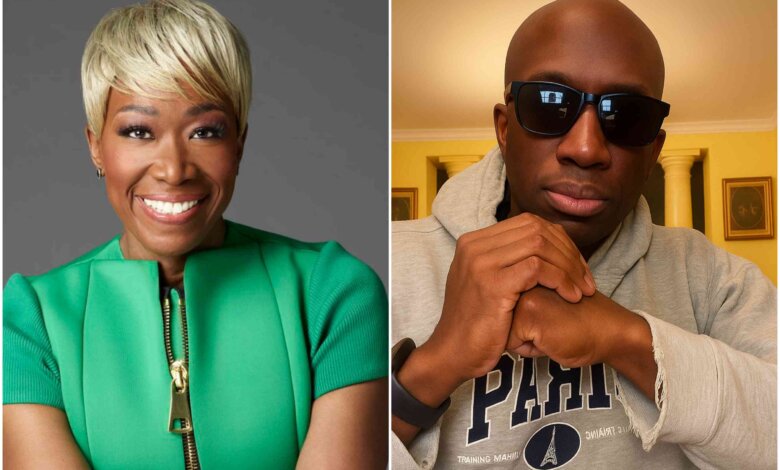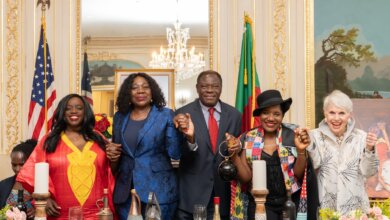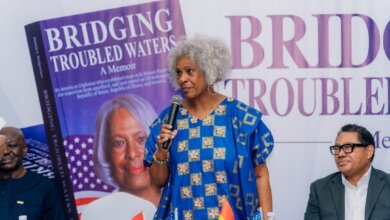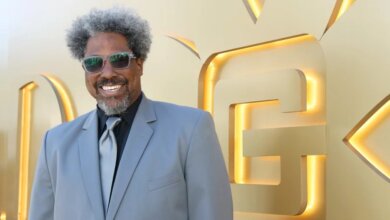
American commentator and television host, Joy Reid spoke with Nigerian content creator, The Merc about how Nigeria removed history from its school curriculum prior to 2025, and drew direct comparisons to current attempts in the United States to alter teachings on slavery and civil rights. Reid asked The Merc to explain the origins of history erasure in Nigeria.
He described a gradual policy shift under the Nigerian government that replaced mandatory history classes with social studies. “So late ’70s, early ’80s, the Nigerian government, it was a gradual thing. So what happened, first of all, was that history was no longer mandated in schools. And what they did was they introduced a subject called social studies,” he said.
The Merc, who attended school in Nigeria during the early 1980s, said, “I went to school in Nigeria in the early ’80s, and I did social studies. And it wasn’t until recently when the president reinstated history that I realized I never did history.” He explained that social studies served as civic education following the Nigerian Civil War from 1967 to 1970.
“So that was 1967 to 1970. And what they wanted to do was to rebuild the nation. And it was more of a psychological social engineering program where they didn’t want people learning about history per se, just the nuts and bolts and facts of it, but they wanted very, very specific ideology to unify the people,” The Merc stated.
He argued that full knowledge of pre-colonial Nigeria would make it hard to justify the modern republic, adding, “Because if you think about it, the more that they learned about the history of Nigeria, the origin, the colonialism, where we came from, what the tribes were, the Kingdoms, it will be very, very difficult to justify the Republic of Nigeria.”
He dismissed official excuses. “They said it was the teachers. There weren’t enough teachers to do history. They said that history wasn’t a viable subject for employment, that there wasn’t enough interest from the students. But I believe it was a political thing, personally,” he noted.
Reid highlighted parallels in the United States, calling them mind-blowing. She said the Nigerian approach assumed people could not handle truth without fracturing unity, which she found infantilizing. The Merc agreed the impact in Nigeria has been extremely negative.
“Oh, no, it’s been extremely bad. I mean, look, if you go to the average Nigerian on the streets, they don’t know what years the Civil War was fought. They don’t know what the two factions were, the reasons for the war, none of those things. In fact, we know more about colonial powers and the British Empire than we do about Nigerian Kingdoms and so forth,” he said.
He connected this to actions by former President Donald Trump, including an executive order numbered 14253 and changes at the Smithsonian Museum. “The irony is that his statement is that he says he’s restoring truth and sanity to American history. That’s what he said. And what truth is the question that you would really ask,” The Merc said.
He said both Nigeria and the U.S. efforts aim to control narratives. “It’s really about controlling narratives and controlling the perception of history, because right now we’re making history. So, the more that you can control a narrative, the easier it is for you to manipulate a population.”
He pointed out the moves to remove slavery artifacts from museums and efforts by former Florida Governor Ron DeSantis to exclude slavery from textbooks. The Merc stressed these changes do not target Black children but White children. No one is born racist or prejudiced, he said, and exposure to truth creates empathy. He argued that without it, blanket policies become easier.
He gave an example with Trump supporters, “If you talk to the average White voter who is a Trump supporter, for example, and you tell them, what do you think of Marxism? And they’ll be like, oh, Obama was a Marxist. He was this, he was that. And you say, Okay, cool. What is Marxism? They can’t tell you,” he recounted.
He explained Marxism as conflict between elites who control production and the proletariat who sell labour. He said anti-elite rhetoric from such voters ironically aligns with Marxist ideas of power to the people, though success could lead to communism, which is then demonized.
“The elite, the bourgeoisie, are the people who control production, and the proletariats are the people who control labour, and they sell labour. Now, if you understand that, the whole point about Marxism is that It’s power to the people,” he added.
He noted that billionaires like Betsy DeVos, the Koch brothers, Bill Gates, and the Walmart Waltons have invested hundreds of millions to privatize education, defund public schools, and shift to charter and private systems. The goal according to him is to control the narrative.
The Merc said solutions lie in Pan-Africanism and recognizing Black American economic power. He explained that Black Americans have $1.8 trillion in annual spending power, that if considered a country, would rank as the 15th most powerful globally, ahead of Saudi Arabia, all African nations, and most South American and Middle Eastern countries except a few like Mexico, Brazil, and others.
He listed countries it would surpass. “Do you know the only country more powerful than a Black America? If we are talking about the United States of Black America, America, Britain, China, Russia, Brazil, Japan, Australia, Mexico, South Korea, France, and Italy. Do you know that Saudi Arabia isn’t as powerful as Black America?” he continued.
He called Trump’s actions a blessing and wake-up call, showing America never cared about Black history while funding institutions like the Holocaust Museum without debate. Black Americans do not need to ask for anything, he said. With their power, they can build their own world-class museums to commemorate 400 to 500 years of ancestral struggles, attracting global visitors.
“You can build your own museums. The museum that Black America could build could be the greatest museum we’ve ever seen in our lives. It could be the type of museum people fly from all over the world to go and see, to commemorate what your ancestors went through for 400, 500 years,” he affirmed.
Watch full interview on YouTube.
Written by Oral Ofori
Oral Ofori is Founder and Publisher at www.TheAfricanDream.net, a digital storyteller and producer, and also an information and research consultant.





